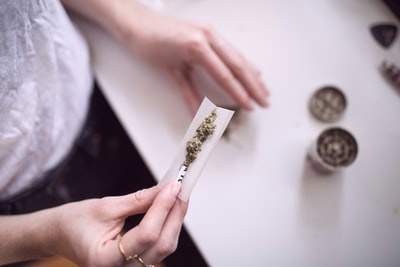Only a Good Lab Can Offer Assurance.
If you’re ever up for a high-stakes game of What If?, Google this phrase: “Has the DEA stepped in to make Delta-8 illegal?”
Why even search the topic?
Well, it’s been hard to miss the flurry of media reports about the explosion of hemp products for sale that contain Delta-8, and the nagging questions of its legality.
First let’s catch up on exactly what Delta-8 is, and how it differs from Delta-9, the psychoactive feature of cannabis (marijuana).
Delta-8 and Delta-9 are both tetrahydrocannabinols (THC), just two of 100 plus cannabinoids currently found in cannabis. When the 2018 Farm Bill was written, it legalized hemp growing and distribution throughout the US (although some states still bar its production). The 2018 Farm Bill (officially the 2018 Agricultural Improvement Act, or AIA) also defined marijuana by the concentration of the Delta-9 tetrahydrocannabinol, setting its “legal” concentration level at 0.3%.
The Farm Bill did not explicitly bar the Delta-8 tetrahydrocannabinol, by name, as a restricted tetrahydrocannabinol, and may be due to the fact that Delta-8’s psychoactive properties are largely unknown. According to the NIH[1]“It [Delta-8] is an analogue of tetrahydrocannabinol (THC) with antiemetic, anxiolytic, appetite-stimulating, analgesic, and neuroprotective properties. This agent exhibits a lower psychotropic potency than delta-9-tetrahydrocannabinol (delta-9-THC), the primary form of THC found in cannabis.”
As with Delta-9, without randomized multi-center control trials (which is the gold standard in pharmaceutical drug testing), regulators are hard-pressed to provide clear guidance in any direction. And with little guidance, hemp producers are finding this newly discovered analyte a profitable one.
In a recent, excellent NY Times article about the emerging market for Delta-8 products, the owner of the Georgia Hemp Company, Joe Salome (a seller of Delta-8 products) explained the psychoactive properties of Delta-8 this way, saying it has a “very similar to its psychoactive brother THC… without the same anxiety-producing high that some can experience with [Delta-9] THC.”[2]Consumers, in droves, have taken notice of the loophole.
Is Delta-8 Legal?
Although the 2018 Farm Bill did not explicitly ban the derivation of Delta-8 from hemp, nor set its allowable potency, the legality of Delta-8 is still a gray area. In very small quantities, Delta-8 occurs naturally in hemp, but can be synthesized from CBD to make a commercially viable Delta-8 product. Without an explicit ruling from the DEA, the sale of Delta-8 is happening in states even where it remains illegal to sell or consume marijuana products.
The DEA’s position is vague and can be read either for or against legality. That said, an interim ruling[3]from the DEA states: The AIA [Farm Bill] does not impact the control status of synthetically derived tetrahydrocannabinols (for Controlled Substance Code Number 7370) because the statutory definition of “hemp” is limited to materials that are derived from the plant Cannabis sativa L. For synthetically derived tetrahydrocannabinols, the concentration of Δ9-THC is not a determining factor in whether the material is a controlled substance. All synthetically derived tetrahydrocannabinols remain schedule I controlled substances.
For those arguing that Delta-8 is illegal, it’s clear to them that Delta-8 is a “synthetically derived tetrahydrocannabinol,” and that producers or purveyors of Delta-8 could see their investments and products vanish, faster than flavored vapes, with the stroke of the DEA’s pen. Others argue that the hemp producer is merely “isomerizing” CBD into Delta-8 so it is not a synthetic product, just the same product in another form. Any freshman Organic Chemistry student will tell you that is incorrect, the conversion of CBD to Delta-8 includes new bond formation under conditions of heat and strong acids, which is synthesis, and not simple isomerization.
Test for Both Delta-8 and Delta-9
I am not here to take a stance on that discussion. But I am going to tell you that it is important to work with a lab that can accurately tell you what you have. If extractors are producing Delta-8, they should work with a lab that is able to confidently separate Delta-8 from Delta-9 when testing for cannabinoids. The laboratory data can help them verify and potentially defend their product in a court of law. Lab results can also help them remediate any Delta-9 from their product before selling it upstream to a finished-products manufacturer. In the end, an improperly formulated finished product reaching the hands of the unwitting consumer can destroy that business relationship and perception of the brand.
The use of chromatography is standard practice for cannabinoid analysis, but even the most expensive Tesla, still needs a driver, the task of picking a quality lab to test for Delta-8 and Delta-9 should not be taken lightly. Working with a reputable lab that can independently quantify the two analytes is surely prudent, especially now given how quickly the legal landscape of Delta-8 could change. Because the regulations are still in their infancy, it’s also prudent for each company within the supply chain to verify the potency results. Only then will hemp producers be prepared to nimbly respond to the changing legal landscape.
[1]https://www.ncbi.nlm.nih.gov/medgen/27983
[3]https://fidefreight.com/2020/08/21/dea-cracks-down-on-delta-8-and-extracts/
The post Does the Production and Sales of Hemp Products that Contain Delta-8 Put Producers in Legal Peril? appeared first on Cannabis Business Executive – Cannabis and Marijuana industry news.






